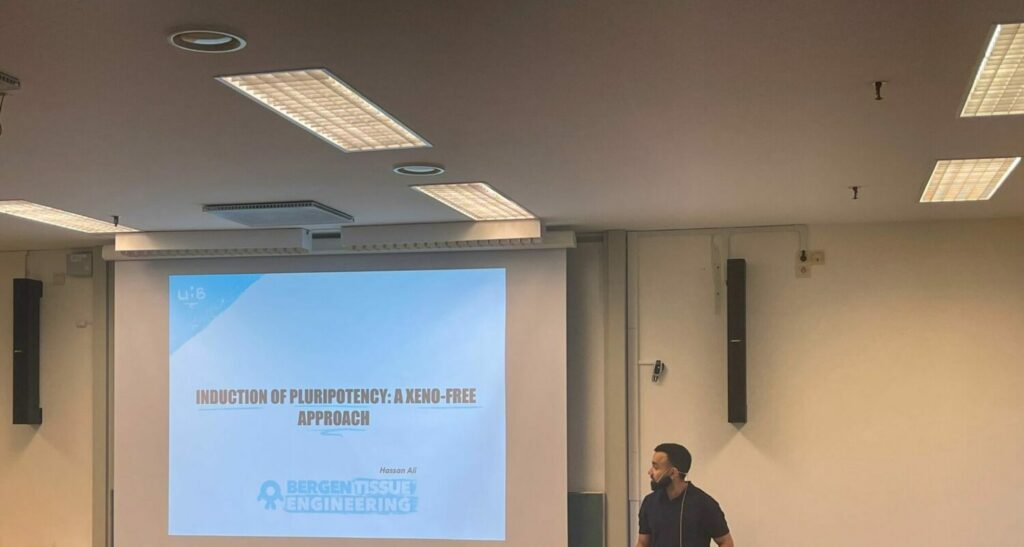Our distinguished fellows, PhD. Shuntaro Yamada and prospective PhD. Hassan Ali delivered excellent and inspiring research findings in the field of tissue engineering!
A heartfelt thank you to everyone who joined Mini-Symposium exploring the cutting-edge advancements in regenerative medicine! 🚀
🔬 Highlights:
- Engaging discussions led by excellent researchers in the field.
- Insightful presentations covering a range of topics from immunotherapy to schizophrenia, biomaterials, and implants.
- A glimpse into the future of healing and groundbreaking research.
🙌 Gratitude: Special thanks to Dear Shuntaro and Hassan for their excellent talk and presentations in MRCRM Mini-Symposium.
Shuntaro Yamada
3D cell culture under flow – Mechanical Regulation of Bone Marrow Mesenchymal Stem Cells:
There is a growing demand for three-dimensional cell culture platforms in tissue engineering and regenerative medicine. In this study, we employed a perfusion bioreactor system with bone marrow-derived mesenchymal stem cells (BMSCs) seeded on synthetic polymer scaffolds and evaluated the mechanical regulation of BMSCs, with a specific focus on osteogenic differentiation. Under perfusion exerting sub-physiological levels of fluid shear stress, BMSCs displayed the osteoblastic phenotype, including upregulation of osteogenic markers and mineralization, in the absence of osteoinductive supplements. Notably, mechanically induced osteogenic differentiation was attributed to induced actomyosin contractility under perfusion. This presentation will provide insight into the utility of perfusion bioreactor systems for cell culture and cellular regulation under fluid flow.
Hassan Ali, MSc
Induction of pluripotency: a Xeno-free approach:
Induced pluripotent stem cells (iPS) have been touted as highly promising in the fields of regenerative medicine/research. However, to facilitate and ensure safe clinical use, iPS generation must be devoid of xenogenic products. This presentation will focus on the assessment of a xeno-free protocol for iPS generation, specifically on how it affects cell reprogramming efficiency, the resultant iPS, and how it compares to mainstream xenogenic protocols.

